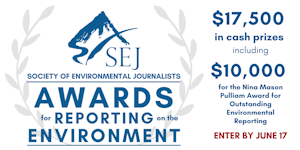"Panel: Finding Climate Fingerprints In Wild Weather Is Valid"
"Climate science has progressed so much that experts can accurately detect global warming’s fingerprints on certain extreme weather events, such as a heat wave, according to a high-level scientific advisory panel."














 Advertisement
Advertisement 



